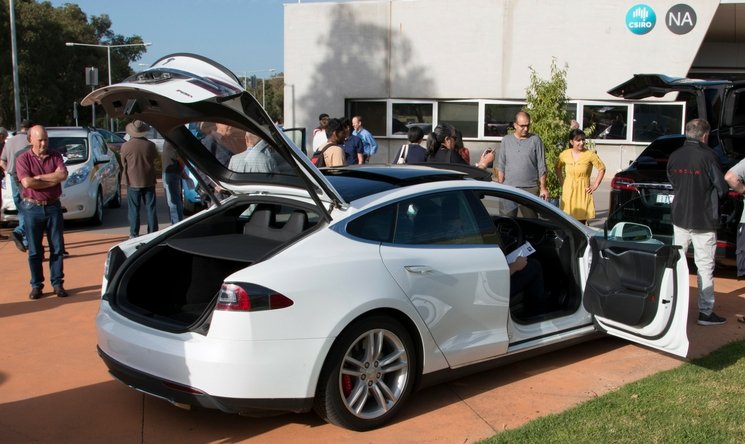Electric cars are a regular sight on the streets of many cities around the world and Geelong could soon be part of the trend. Deakin and CSIRO researchers are challenging themselves to build a home for battery technology innovation that will one day power the next wave of electric vehicles.
After 20 years of research in electro materials and related fields, Deakin University and CSIRO have joined forces to establish BatTRI-Hub (Battery Technology Research and Innovation Hub) – a place to develop the next generation of “beyond lithium-ion” battery technologies.
Aiming to accelerate the prototyping and commercialisation of energy storage technologies, the hub will boost sustainable power and energy industries, including an emerging electric vehicle industry in the Geelong region.
The hub is a significant first step in the expected development of a full pilot-scale facility at Geelong in the next few years.
At Deakin’s Institute for Frontier Materials (IFM), the hub will help to leverage opportunities for industries across the full energy value chain – improving techniques to achieve safer, lighter, and more durable batteries. The hub’s prototype-scale manufacturing facility began operating in late 2016.
The materials component of batteries is only five to 10 percent of the system cost. Battery design requires expertise in areas such as packaging, engineering, and electronics that are equally important. BatTRI-Hub has the expertise to make batteries lightweight, package them and make them safe.
They are focusing on ‘salt based' electrolyte materials, such as ionic liquids, plastic crystals, and ionic-polymers, which are very stable, non-volatile, and non-flammable. The team is confident that BatTRI-Hub will support the integration of this new technology into global markets.
As part of a broader energy research and education program through Deakin Energy, the School of Engineering team also works with many stakeholders to investigate future energy solutions, such as distributed renewable energy-based generation producing energy near to where it is consumed.
Other initiatives, the team has been working with the Surf Coast Shire to develop a small demonstration microgrid system.
“The region has huge potential to achieve the renewable energy target set by the Shire and even go further. It is an ideal location for introducing renewable energy generation and the region can play a significant role in achieving Victoria’s renewable energy target. We need to look at various energy storage technologies from small to large scale energy storage systems, including pumped hydro storage which will be one of the key energy storage solutions of the future,” says Associate Professor Aman Oo.
Deakin University recently received a major grant of almost $1 million from the Australian government’s Australia-India Strategic Research Fund.
The team at Deakin’s IFM will work in partnership with the Indian Institute of Science, Bangalore (IISc) and the Indian Institute of Technology, Bombay (IIT-B) on a project to increase the potential of renewable energy with the development of improved energy storage solutions.
The project, New materials for large-scale, high stability, high energy density batteries: from material design to prototype development, will result in the development of safer, more efficient, and stable energy storage materials and technologies.
Geared towards stationery, large-scale applications, such as electricity grids, the project aims to develop new lithium and sodium prototype batteries, using new electrolyte materials, which will be more stable and have longer lifetimes than batteries currently on the market. To make a significant impact on reducing greenhouse gas emissions resulting from electricity generation, efficient and reliable energy storage capabilities are vital. Battery technologies offer the most viable solution to the energy storage problem and allow greater penetration of renewables into the electricity grid.
With the support of exceptional researchers at IISc and IIT-B, the team is confident that this grant will lead to significant improvements to remote or stand-alone renewable energy installations, such as those located in isolated communities or rural areas, which are of major importance in both India and Australia.

This story originally appeared in the Business Excellence Magazine, Volume 10, Issue 2, Winter 2017.
 |
Professor Maria ForsythBatTRI-Hub Director |
Melbourne Chamber Memberships are tailored to the circles you wish to move in to gain maximum exposure and influence for your business.
To receive the latest news straight to your inbox, sign up now!